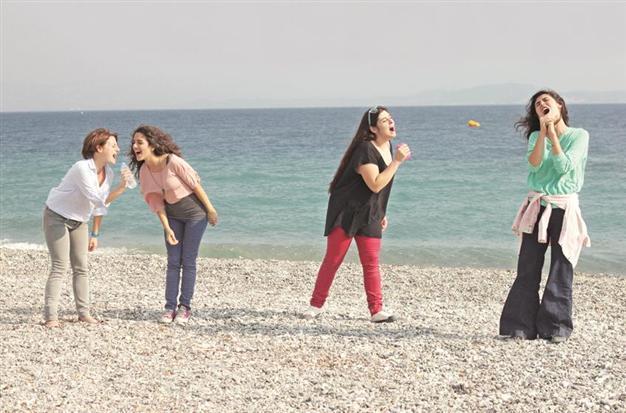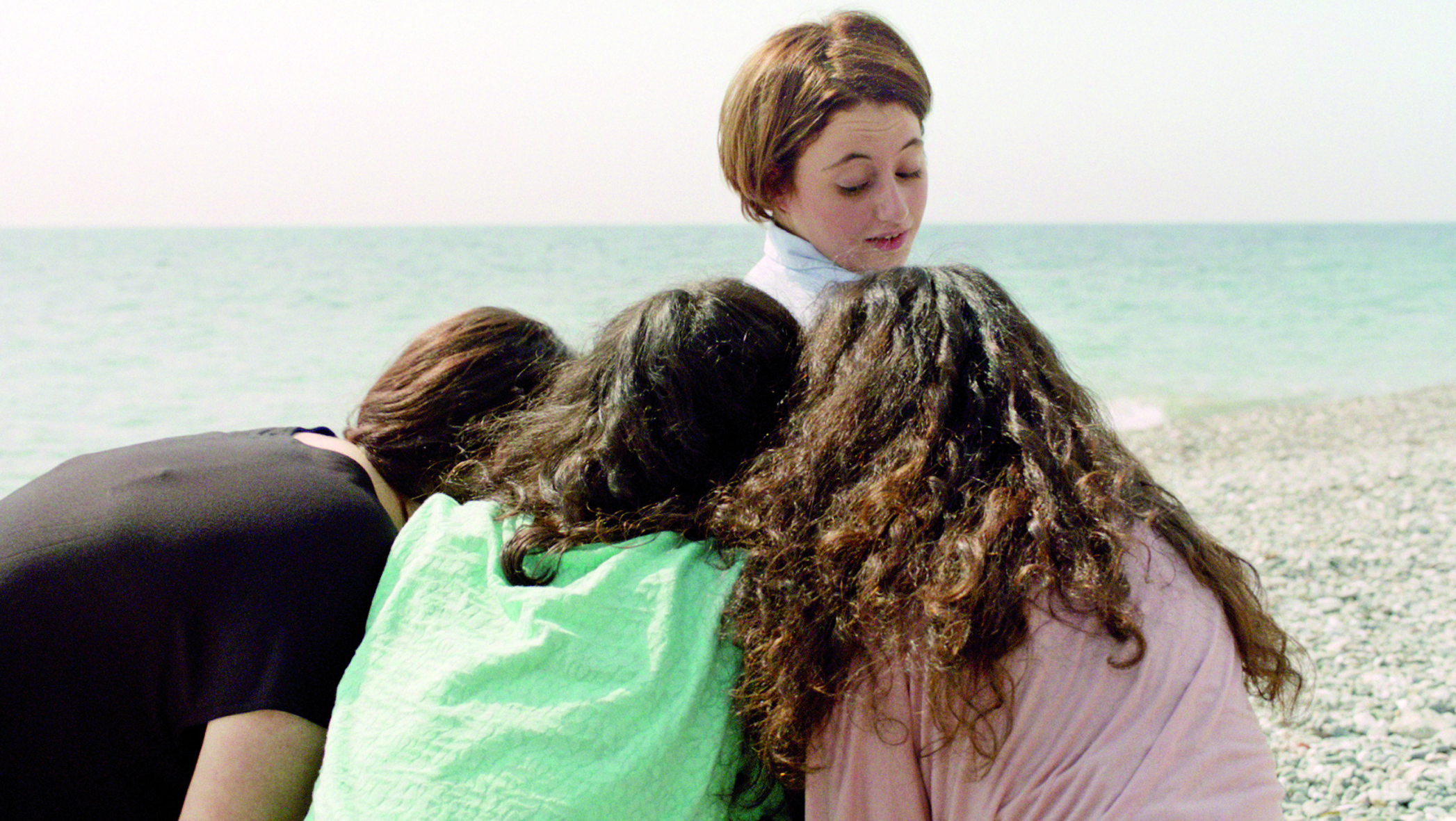‘The Blue Wave’: A rare glimpse into the lives of teens
Emrah GÜLER

‘Mavi Dalga’ doesn’t rely on dramatic shifts and twists, but chooses to portray teens with
nuanced details in their natural habitats.
Turkish cinema, and TV for that matter, often has not really been kind and generous to its young people. Switch on the TV for the eons of shows set in today’s Turkey, you will undoubtedly see the urban millennials as the narcissistic bad girls, the bad boys they are attracted to, and for dramatic purposes, the hapless victims of these sketchy versions of “Gossip Girl” characters.
It must be easy to pigeonhole young people into cardboard characters with their mood shifts, reluctance to take responsibility, and nice skin on the writers’ and directors’ part. While urban teens flock to Turkish TV shows, they are a rare item in cinema. Boys hoping to get lucky, and the objects of their affection, sometimes take screen time in comedies hoping to get a few cheap laughs.
There are full-fledged young characters in some of the dramas, only to be players in the grand scheme of a story. They are the broken children of broken families, they are the Kurdish girls running toward a dream, and they are the frustrated young men on the outskirts of big cities, matured before their age.

That’s why this week’s new release, “Mavi Dalga” (The Blue Wave), is a breath of fresh air, arguably being the first in its depiction of young people, more specifically teens. Directed by two female directors, Zeynep Dadak and Merve Kayan, and the winner of Best First Film, Screenplay and Editing awards in last year’s Golden Orange Film Festival, “Mavi Dalga” is a coming-of-age story that leaves the audience with a sweet aftertaste.
The film begins with Deniz (Ayris Alptekin) and her family closing their summer house, taking their last dips in the sea, and getting ready to return home to the small city of Balıkesir. Many coming-of-age stories take the summer and the idyllic setting to accompany the backdrop of the story. Here, it is the opposite. Summer is over, and the kids are returning to school.
Love for characters“Mavi Dalga” takes place during one school year in high school, the junior year when the students are expected to make decisions to shape their university choices, possible career paths, simply put, their future. Deniz is back on her track with her three best friends, another new one added despite her reluctance to include her into the clique, and her summer fling, Kaya.

The film doesn’t rely on dramatic shifts and twists, but chooses to portray teens with nuanced details in their natural habitats, going to school, back to home, wandering idly on the streets, back to school again. At first glance, Deniz is your average teenager, played wonderfully by Alptekin. She is moody, refraining from wearing a smile, mumbling her words whenever she doesn’t feel in the mood for communicating.
She has to decide on the path she is going to choose after graduation. She wants to go to Ankara, to the Middle East Technical University; she blurts this to her guidance counselor to the utter surprise of one of her best friends next to them. Wasn’t the plan for all three girls to go study in Istanbul together? In truth, Deniz doesn’t care much where she goes after high school at that point in her life. Her priority is to impress the counselor she has a crush on.
High school crushes, feuds, pranks, parties, and high school blues make up a year in the life of Deniz and her friends. One third into the movie, the audience realizes that directors Dadak and Kayan have not set out to judge their characters, or give any kind of sketch about the profile of young people. Theirs is a love for their characters, and a need to understand what makes them tick, and what fails them.
Deniz and her friends drift in and out of their mundane lives, fuelled by hormones and their mood shifts. But the strength in their hearts remains intact. There is a full life ahead of Deniz and her friends, which they refuse to acknowledge despite repeated attempts by family and teachers. At those moments, you get a rare glimpse into what it is (and was) to be young. “Mavi Dalga” takes the audience on that rare journey when you feel you have found something you had thought long lost.

 That’s why this week’s new release, “Mavi Dalga” (The Blue Wave), is a breath of fresh air, arguably being the first in its depiction of young people, more specifically teens. Directed by two female directors, Zeynep Dadak and Merve Kayan, and the winner of Best First Film, Screenplay and Editing awards in last year’s Golden Orange Film Festival, “Mavi Dalga” is a coming-of-age story that leaves the audience with a sweet aftertaste.
That’s why this week’s new release, “Mavi Dalga” (The Blue Wave), is a breath of fresh air, arguably being the first in its depiction of young people, more specifically teens. Directed by two female directors, Zeynep Dadak and Merve Kayan, and the winner of Best First Film, Screenplay and Editing awards in last year’s Golden Orange Film Festival, “Mavi Dalga” is a coming-of-age story that leaves the audience with a sweet aftertaste. The film doesn’t rely on dramatic shifts and twists, but chooses to portray teens with nuanced details in their natural habitats, going to school, back to home, wandering idly on the streets, back to school again. At first glance, Deniz is your average teenager, played wonderfully by Alptekin. She is moody, refraining from wearing a smile, mumbling her words whenever she doesn’t feel in the mood for communicating.
The film doesn’t rely on dramatic shifts and twists, but chooses to portray teens with nuanced details in their natural habitats, going to school, back to home, wandering idly on the streets, back to school again. At first glance, Deniz is your average teenager, played wonderfully by Alptekin. She is moody, refraining from wearing a smile, mumbling her words whenever she doesn’t feel in the mood for communicating.